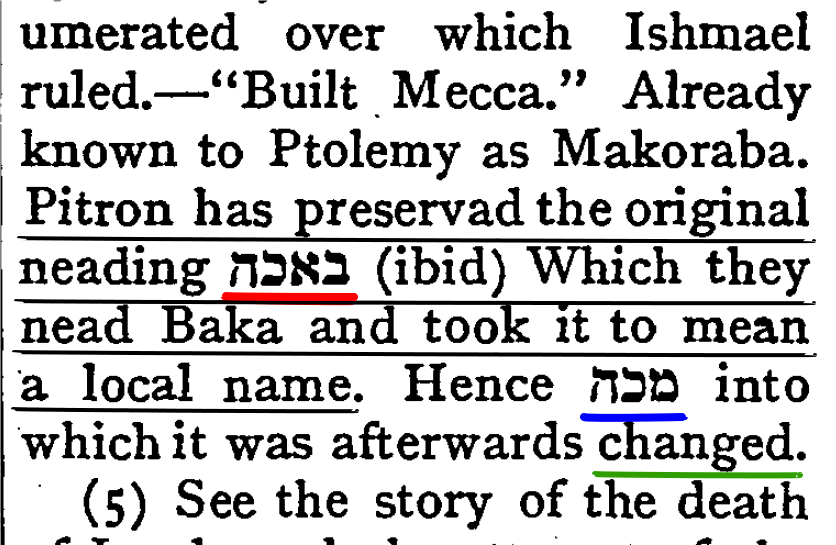Salama aleikum,
here is an article dealing with question of reliability of the Hebrew Bible text:
August 17, 2011
Scholars: The Torah We Have Today Is Not The Torah Our Ancestors HadJerusalem scholars trace Bible's evolution
Hebrew University researchers have been quietly at work for 53 years on one of most ambitious projects attempted in biblical studies – publishing authoritative edition of Old Testament
Jerusalem (AP) – A dull-looking chart projected on the wall of a university office in Jerusalem displayed a revelation that would startle many readers of the Old Testament: The sacred text that people revered in the past
was not the same one we study today.
An ancient version of one book
has an extra phrase. Another appears to have been revised to retroactively
insert a prophecy after the events happened.
Scholars in this out-of-the-way corner of the Hebrew University campus have been quietly at work for 53 years on one of the most ambitious projects attempted in biblical studies – publishing the authoritative edition of the Old Testament, also known as the Hebrew Bible, and tracking every single evolution of the text over centuries and millennia.
And it has evolved, despite deeply held beliefs to the contrary.
For many Jews and Christians, religion dictates that the words of the Bible in the original Hebrew are divine, unaltered and unalterable. For Orthodox Jews, the accuracy is considered so inviolable that if a synagogue's Torah scroll is found to have a minute error in a single letter, the entire scroll is unusable.
But the ongoing work of the academic detectives of the Bible Project, as their undertaking is known, shows that this text at the root of Judaism, Christianity and Islam was somewhat fluid for long periods of its history, and that its transmission through the ages was messier and more human than most of us imagine.
The project's scholars have been at work on their critical edition of the Hebrew Bible, a version intended mainly for the use of other scholars, since 1958.
"What we're doing here must be of interest for anyone interested in the Bible," said Michael Segal, the scholar who heads the project.
The sheer volume of information makes the Bible Project's version "the most comprehensive critical edition of the Hebrew Bible in existence at the present time," said David Marcus, a Bible scholar at the Jewish Theological Seminary in New York, who is not involved with the project.
But Segal and his colleagues toil in relative anonymity. Their undertaking is nearly unknown outside a circle of Bible experts numbering several hundred people at most, and a visitor asking directions to the Bible Project's office on the university campus will find that many members of the university's own staff have never heard of it.
Only 3 books published in 5 decades
This is an endeavor so meticulous, its pace so disconnected from that of the world outside, that in more than five decades of work the scholars have published a grand total of three of the Hebrew Bible's 24 books. (Christians count the same books differently, for a total of 39.) A fourth is due out during the upcoming academic year.
If the pace is maintained, the final product will be complete a little over 200 years from now. This is both a point of pride and a matter of some mild self-deprecation around the office.
Bible Project scholars have spent years combing through manuscripts such as the Dead Sea Scrolls, Greek translations on papyrus from Egypt, a printed Bible from 1525 Venice, parchment books in handwritten Hebrew, the Samaritan Torah, and scrolls in Aramaic and Latin. The last member of the original team died last year at age 90.
The scholars note where the text we have now differs from older versions - differences that are evidence of the inevitable textual hiccups, scribal errors and other human fingerprints that became part of the Bible as it was passed on, orally and in writing.
A Microsoft Excel chart projected on one wall on a recent Sunday showed variations in a single phrase from the Book of Malachi, a prophet.
The verse in question, from the text we know today, makes reference to "those who swear falsely."
The scholars have found that in quotes from rabbinic writings around the 5th century A.D.,
the phrase was longer: "those who swear falsely in my name."In another example, this one from the Book of Deuteronomy, a passage referring to commandments given by God "to you" once read "to us,"
a significant change in meaning.
Other differences are more striking.
The Book of Jeremiah is now one-seventh longer than the one that appears in some of the 2,000-year-old manuscripts known as the Dead Sea Scrolls. Some verses, including ones containing a prophecy about the seizure and return of Temple implements by Babylonian soldiers,
appear to have been added after the events happened.
The year the Bible Project began, 1958, was the year a priceless Hebrew Bible manuscript arrived in Jerusalem after it was smuggled out of Aleppo, Syria, by a Jewish cheese merchant who hid it in his washing machine. This was the 1,100-year-old Aleppo Codex, considered the oldest and most accurate version of the complete biblical text in Hebrew.
The Bible Project's version of the core text – the one to which the others are compared – is based on this manuscript. Other critical editions of the Bible, such as one currently being prepared in Stuttgart, Germany, are based on a slightly newer manuscript held in St. Petersburg, Russia.
Considering that the nature of their work would be considered controversial, if not offensive, by many religious people, it is perhaps surprising that most of the project's scholars are themselves Orthodox Jews.
"A believing Jew claims that the source of the Bible is prophecy," said the project's bearded academic secretary, Rafael Zer. "But as soon as the words are given to human beings - with God's agreement, and at his initiative – the holiness of the biblical text remains, even if mistakes are made when the text is passed on."
Taken from:
http://failedmessiah.typepad.com/failed_messiahcom/2011/08/the-tanakh-as-it-was-the-evolution-and-change-of-the-hebrew-bible-456.html
Scholars seek Hebrew Bible’s original text — but was there one?By Anthony Weiss - May 13, 2014 4:39pm
The text of today’s Torah scrolls
differs from the versions of the biblical books that existed millennia ago. (Konstantin Goldenberg/Shutterstock)
LOS ANGELES (JTA) — According to Jewish tradition, the Torah is so sacred that
even a single error made on a single letter renders the entire scroll unusable.
And yet the Hebrew Bible — including the Torah, its first five books — is riddled with
corruptions and alterations that have accrued and been passed down over the millennia.
Read the whole article:
http://www.jta.org/2014/05/13/news-opinion/united-states/scholars-seek-hebrew-bibles-original-text-but-was-there-one.Early rabbinic sources, from around 200 CE, "
mention several passages of Scripture in which the conclusion is inevitable that the ancient reading must have differed from that of the present text [...]
Rabbi Simon ben Pazzi (third century) calls these readings "emendations of the Scribes" (tikkune Soferim; Midrash Genesis Rabbah xlix. 7), assuming that the Scribes actually made the changes. [
The Jewish Encyclopedia, I. Singer, Ph.D., C. Adler, Ph.D. [General Editors], vol. 8 (NY: KTAV Publishing House, Inc., 1901), p. 366, entry: Masorah]
Take care, and salam
Ahmed (Poland, Warsaw)




 Soon, when I open a blog, I will share with you many other findings.
Soon, when I open a blog, I will share with you many other findings.
